“I have seized the light. I have arrested its flight.”
—Louis Jacques Mande Daguerre, French artist, born November 18, 1787
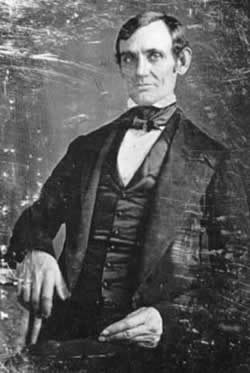 Daguerre invented one of the earliest successful photographic processes, the Daguerreotype. The drawback of the process was that it produced a unique image, that was not reproducible, unlike the contemporary invention of Henry Fox Talbot in England. Nevertheless, millions of Daguerreotypes were made. Many Daguerrotypes still exist, mostly portraits, the medium’s most popular and common subject matter.
Daguerre invented one of the earliest successful photographic processes, the Daguerreotype. The drawback of the process was that it produced a unique image, that was not reproducible, unlike the contemporary invention of Henry Fox Talbot in England. Nevertheless, millions of Daguerreotypes were made. Many Daguerrotypes still exist, mostly portraits, the medium’s most popular and common subject matter.
Our friend Fran Fahey of Fran’s Fine Editing, who runs the Tuesday morning G.R.I.S.T. group in Easthampton was kind enough to correct us: We had G.R.I.S.T. on wrong alternate Tuesdays. We apologize for any confusion.
Nice of the editors of Harrisburg Patriot-News to apologize for their predecessors’ famous dissing of the Gettysburg Address. I remember from school that in general, Edward Everett’s blockbuster address was considered the great speech of the day at the time. Everett himself was “deeply impressed” by Lincoln’s speech, and wrote appreciatively to him about it: “I should be glad if I could flatter myself that I came as near to the central idea of the occasion, in two hours, as you did in two minutes.”
A more optimistic view of the renewed growth of jobs in personal service than I am able to take, my idea of “artisanal service” aside. Industrial jobs are obviously no bed of roses, but a widespread return to the tortuous dialectics of master and servant in an ostensibly democratic society seems pretty awful to me.
I love today’s Last Word: the founder of Honda Motors reminiscing about his first encounter with the astonishing automobile.
Today and Tomorrow in #westernma
Reading
“We write today in reconsideration of ‘The Gettysburg Address,’ delivered by then-President Abraham Lincoln in the midst of the greatest conflict seen on American soil. Our predecessors, perhaps under the influence of partisanship, or of strong drink, as was common in the profession at the time, called President Lincoln’s words ‘silly remarks,’ deserving ‘a veil of oblivion,’ apparently believing it an indifferent and altogether ordinary message, unremarkable in eloquence and uninspiring in its brevity.”
Retraction For Our 1863 Editorial Calling Gettysburg Address ‘Silly Remarks’: Editorial
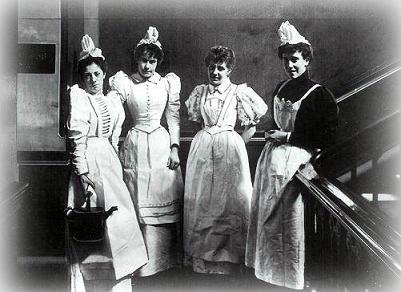 “Working with and for people is not inherently degrading. Teachers and doctors work with people and are rightly respected for what they do. Hair stylists and chefs can be awesomely talented and some will end up extremely wealthy.
“Working with and for people is not inherently degrading. Teachers and doctors work with people and are rightly respected for what they do. Hair stylists and chefs can be awesomely talented and some will end up extremely wealthy.
“Moreover, the new service economy is not going to be a revival of the old feudal system. There may well be nannies and butlers in the future, but they will be much better compensated and much more in demand than even the most loyal of the Downton Abbey crowd. A nanny who is learning to be a nutritionist and a gourmet cook has a much brighter future than Lady Mary’s lady’s maid.”
People Thought the Industrial Revolution Was Servile Too
The Last Word
“I could not understand how it could move under its own power. And when it had driven past me, without even thinking why I found myself chasing it down the road, as hard as I could run.”
—Soichiro Honda, Japanese businessman, born November 17, 1906

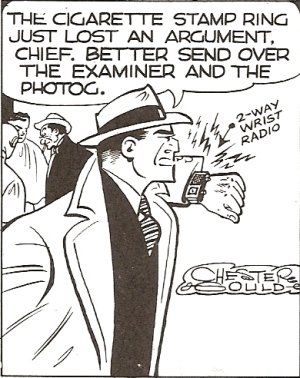 Chester Gould’s “fellow who could” was Dick Tracy, the square-jawed tough-guy detective familiar to generations of funny paper readers. Tracy’s wrist-watch radio prefigured the miniaturized communications gear we all know, and the wearable tech that’s coming soon to a body near you. The other characters in the strip had cool names, too: Tess Trueheart, Tracy’s girlfriend; villains Flattop Jones, Mumbles, and Big Boy; and the Plenty family: B.O., “Gravel Gertie,” and the bee-you-teeful Sparkle.
Chester Gould’s “fellow who could” was Dick Tracy, the square-jawed tough-guy detective familiar to generations of funny paper readers. Tracy’s wrist-watch radio prefigured the miniaturized communications gear we all know, and the wearable tech that’s coming soon to a body near you. The other characters in the strip had cool names, too: Tess Trueheart, Tracy’s girlfriend; villains Flattop Jones, Mumbles, and Big Boy; and the Plenty family: B.O., “Gravel Gertie,” and the bee-you-teeful Sparkle. Daguerre
Daguerre
 The paradoxes and contradictions of the star system and celebrity culture exact an enormous human cost on everyone. Non-celebrities who buy into its mythologies pay the price in endless dissatisfaction exploited by ruthless advertisers and lives distorted or wrecked by emulation of the stars with whom they’re on a pathetic first-name basis. As for the gods and goddesses of our ignoble myths, they don’t seem to enjoy their divinity as much as you might expect. I’m sure Dante could have found a choice spot in Hell for the people who make and live off this system.
The paradoxes and contradictions of the star system and celebrity culture exact an enormous human cost on everyone. Non-celebrities who buy into its mythologies pay the price in endless dissatisfaction exploited by ruthless advertisers and lives distorted or wrecked by emulation of the stars with whom they’re on a pathetic first-name basis. As for the gods and goddesses of our ignoble myths, they don’t seem to enjoy their divinity as much as you might expect. I’m sure Dante could have found a choice spot in Hell for the people who make and live off this system.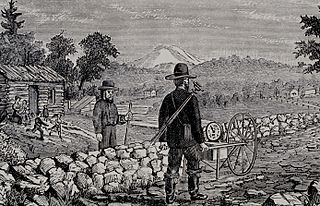

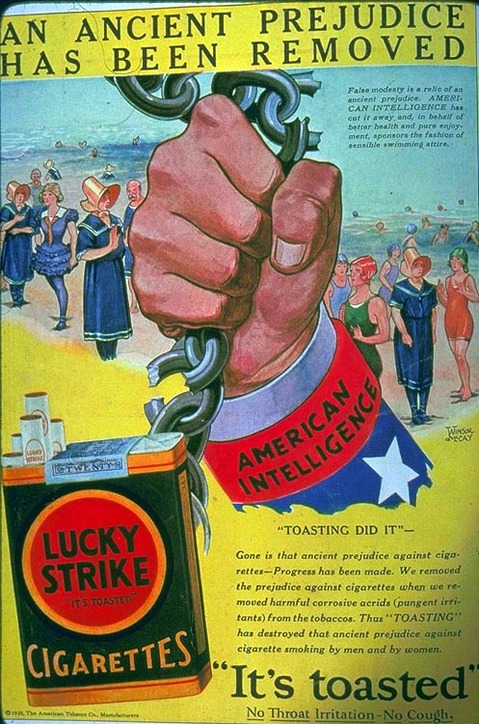 The word “souvenir” (French for a keepsake or memento) enters the English language.
The word “souvenir” (French for a keepsake or memento) enters the English language. “Sciences” like economics, sociology, psychology, and history are notoriously squishy, compared to the big dogs like physics or mathematics. Biology began the transition with the theory of evolution, and decisively crossed over with the development of genetics, culminating in the triumph of the discovery of DNA.
“Sciences” like economics, sociology, psychology, and history are notoriously squishy, compared to the big dogs like physics or mathematics. Biology began the transition with the theory of evolution, and decisively crossed over with the development of genetics, culminating in the triumph of the discovery of DNA.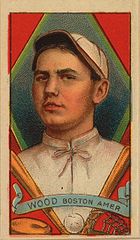 Walter “The Big Train” Johnson
Walter “The Big Train” Johnson